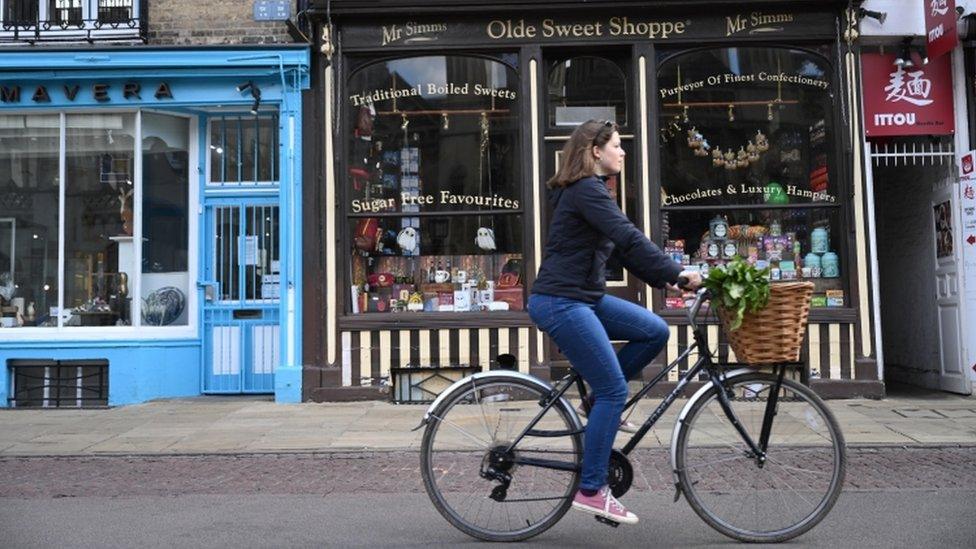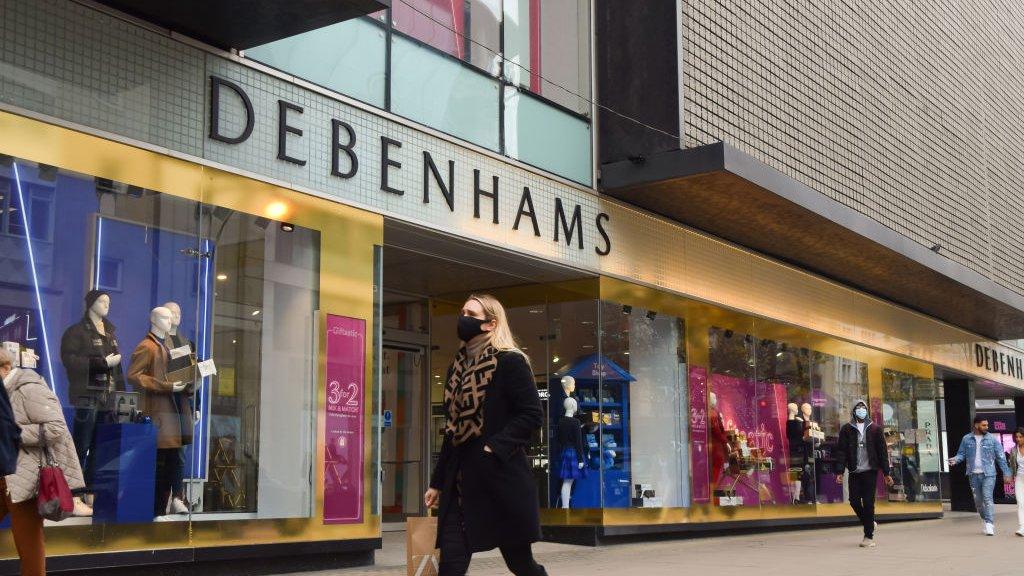Small shops face £1.7bn debt mountain, says report
- Published
- comments

The UK's small shopkeepers are struggling under a £1.7bn mountain of debt, a former retail chief has warned.
Independent High Street businesses now owe four times as much as they did a year ago, said Bill Grimsey, ex-boss of Wickes, Iceland and Focus DIY.
The warning comes in his latest report into the future of town centres and High Streets.
Unless the government steps in, the UK could face a "tsunami" of shop closures this autumn, he said.
According to Mr Grimsey, small shops have survived the pandemic by borrowing, but are now faced with the task of paying it back.
"Our High Street independents have experienced a new-found appreciation during lockdown," he said.
"But they've also been forced to take on government-backed loans, which they would not have normally been able to get because their balance sheets wouldn't allow it. Now they are struggling to manage a mountain of debt and need help."
The review is calling for a government "forgiveness" scheme to write off such loans for viable small businesses.
A Treasury spokesperson said: "Our unprecedented £350bn Covid support package has provided a lifeline to hundreds of thousands of businesses across the UK - through loans, grants, tax cuts, business rates holidays and the furlough scheme.
"The government has always been clear that Bounce Back Loans are loans to be repaid and that they may not be the right answer for all businesses.
"We've provided further support and flexibility to businesses that took out Bounce Back Loans by introducing the Pay as You Grow options, so that loan terms can be extended, monthly repayments reduced and a repayment holiday taken for up to six months."
"The French government is already working on a policy to save small businesses from being crushed by debt and we need to do the same to save thousands," said Mr Grimsey.
Otherwise, he added, a "tsunami" of small independent shop closures could follow in the wake of the 17,500 chain stores that shut down in 2020.
One bright spot has been the rise of the fast-growing hair and beauty sector. But here, too, there were challenges, Mr Grimsey said, pointing out that the sector is largely unregulated compared with other European countries.
Working conditions had also become more insecure, with 63% of people working in beauty salons now self-employed, he added.
"Britain is at a crossroads and the pandemic has brought about sweeping changes that will make a decisive break with a traditional High Street model," he warned.
"But we can't build our way out of trouble. To unlock the potential of our High Streets, we need to focus on people, partnerships and communities as well.
"Britain needs a social recovery to lock in an economic one and our High Streets should lead by example."
Related topics
- Published13 July 2021

- Published6 December 2020
